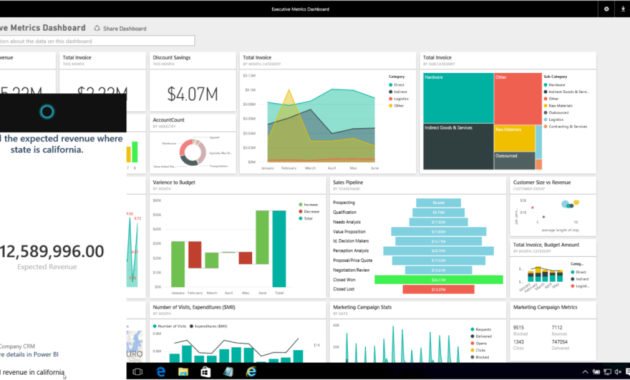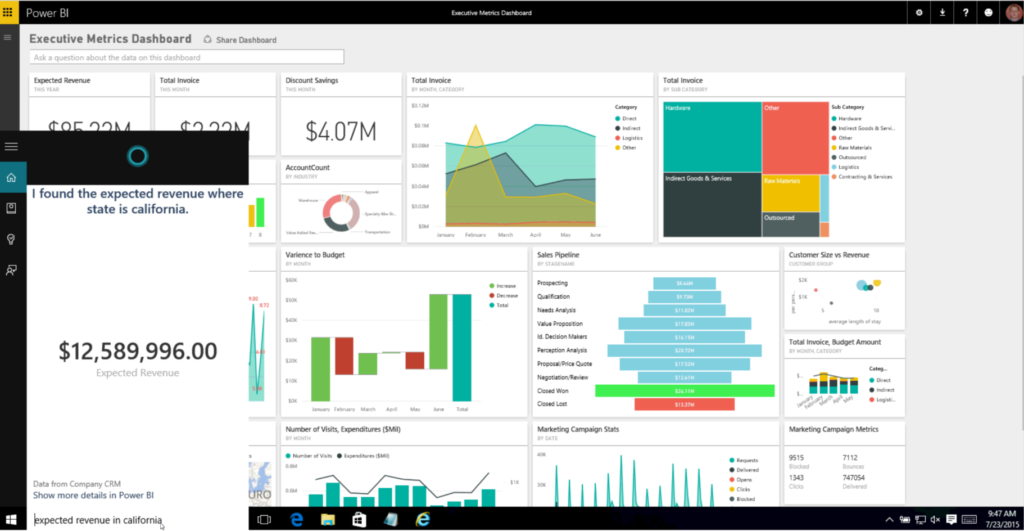
Why Hosts Use These BI Tools: Unveiling the Data-Driven Decisions Behind Hosting Success
In the dynamic world of web hosting, success isn’t solely determined by uptime and bandwidth. It’s also about making informed decisions, understanding customer behavior, and optimizing operations. This is where Business Intelligence (BI) tools come into play. This article delves into the compelling reasons why hosts use these BI tools, exploring how they leverage data to gain a competitive edge and thrive in a demanding market.
The web hosting industry is intensely competitive. Companies constantly strive to provide superior service, attract new customers, and retain existing ones. To achieve these goals, hosts need more than just technical expertise. They require a deep understanding of their business performance and the ability to anticipate future trends. Why hosts use these BI tools is a question with many answers, all pointing to a common goal: informed decision-making.
Understanding the Power of Data in Hosting
Data is the new currency in the digital age. For web hosting providers, data encompasses everything from server performance metrics and customer support tickets to sales figures and website traffic patterns. BI tools provide the infrastructure to collect, analyze, and interpret this vast amount of data, transforming raw information into actionable insights. These insights enable hosts to make data-driven decisions, leading to improved efficiency, increased profitability, and enhanced customer satisfaction.
Key Reasons Why Hosts Use BI Tools
Improved Performance Monitoring and Optimization
One of the primary reasons why hosts use these BI tools is to monitor and optimize server performance. BI tools provide real-time visibility into server resources, including CPU usage, memory consumption, disk I/O, and network traffic. This allows hosts to identify bottlenecks, proactively address performance issues, and ensure optimal website loading speeds for their customers. By analyzing historical data, hosts can predict future resource needs and scale their infrastructure accordingly, preventing performance degradation during peak traffic periods. [See also: Scaling Infrastructure for Peak Performance]
Enhanced Customer Segmentation and Personalization
BI tools empower hosts to segment their customer base based on various factors, such as plan type, usage patterns, geographic location, and support history. This segmentation enables hosts to tailor their marketing efforts, offer personalized support, and provide customized solutions. For example, a host might identify a segment of customers who frequently experience technical issues and proactively offer them specialized support or training. Understanding customer behavior is a critical factor in why hosts use these BI tools.
Data-Driven Sales and Marketing Strategies
BI tools are invaluable for optimizing sales and marketing efforts. By analyzing sales data, hosts can identify the most effective marketing channels, understand customer acquisition costs, and measure the return on investment (ROI) of their campaigns. They can also track customer churn rates and identify the reasons behind customer attrition. This data helps hosts refine their marketing strategies, target the right audience, and improve their sales conversion rates. Sales and marketing optimization is another key reason why hosts use these BI tools.
Proactive Security Threat Detection and Mitigation
Security is a paramount concern for web hosting providers. BI tools can be used to monitor security logs, detect suspicious activity, and identify potential threats in real-time. By analyzing patterns of malicious behavior, hosts can proactively implement security measures to protect their servers and customer data. This includes identifying and blocking malicious traffic, patching vulnerabilities, and implementing intrusion detection systems. Proactive security is a crucial advantage, which is a key reason why hosts use these BI tools.
Optimized Resource Allocation and Cost Management
BI tools help hosts optimize resource allocation and manage costs effectively. By analyzing server utilization data, hosts can identify underutilized resources and reallocate them to areas where they are needed most. They can also track their operational expenses, such as energy consumption and bandwidth costs, and identify opportunities to reduce expenses without compromising performance. Effective resource allocation is a significant aspect of why hosts use these BI tools.
Improved Customer Support and Satisfaction
BI tools can be used to analyze customer support tickets, identify common issues, and track resolution times. This data helps hosts improve their customer support processes, train their support staff more effectively, and reduce customer churn. By understanding the reasons behind customer complaints, hosts can proactively address issues and improve customer satisfaction. This focus on customer experience is a vital reason why hosts use these BI tools.
Specific BI Tools Used by Hosting Providers
Several BI tools are popular among web hosting providers. These tools offer various features and functionalities, catering to different needs and budgets. The choice of tool often depends on the size and complexity of the hosting operation. Some common tools include:
- Tableau: A powerful data visualization tool that allows users to create interactive dashboards and reports.
- Power BI: Microsoft’s business analytics service, offering a wide range of features for data analysis and visualization.
- Looker: A data analytics platform that provides a centralized view of business data and enables data-driven decision-making.
- Grafana: An open-source platform for data visualization and monitoring, particularly useful for real-time server performance monitoring.
- Google Analytics: While primarily a web analytics tool, Google Analytics also provides valuable insights into website traffic and user behavior, which can be integrated with other BI tools.
Implementing BI Tools: Best Practices
Implementing BI tools effectively requires careful planning and execution. Here are some best practices:
- Define Clear Objectives: Before implementing any BI tool, define your specific goals and objectives. What questions do you want to answer with the data?
- Choose the Right Tools: Select BI tools that align with your needs and budget. Consider factors such as ease of use, scalability, and integration capabilities.
- Data Integration: Ensure seamless integration of data from various sources, including server logs, customer databases, and sales systems.
- Data Quality: Implement data quality controls to ensure the accuracy and reliability of your data.
- Training and Adoption: Provide adequate training to your staff on how to use the BI tools and interpret the data. Encourage adoption across the organization.
- Regular Analysis and Reporting: Establish a regular schedule for data analysis and reporting. Share insights with relevant stakeholders.
The Future of BI in Web Hosting
The role of BI tools in web hosting is only going to grow in importance. As the industry becomes more competitive and data becomes more readily available, hosts that leverage BI tools will be better positioned to succeed. Advancements in artificial intelligence (AI) and machine learning (ML) will further enhance the capabilities of BI tools, enabling hosts to automate tasks, predict future trends, and make even more informed decisions. The future is bright for those who understand why hosts use these BI tools and embrace data-driven strategies. [See also: The Role of AI in Hosting]
Conclusion
Why hosts use these BI tools boils down to the need for data-driven insights. In the competitive landscape of web hosting, the ability to understand customer behavior, optimize operations, and anticipate future trends is crucial for success. By leveraging BI tools, hosts can gain a competitive edge, improve profitability, and deliver superior service to their customers. The adoption of BI tools is no longer an option; it’s a necessity for any web hosting provider that wants to thrive in the years to come. The benefits are clear, solidifying the answer to why hosts use these BI tools.

